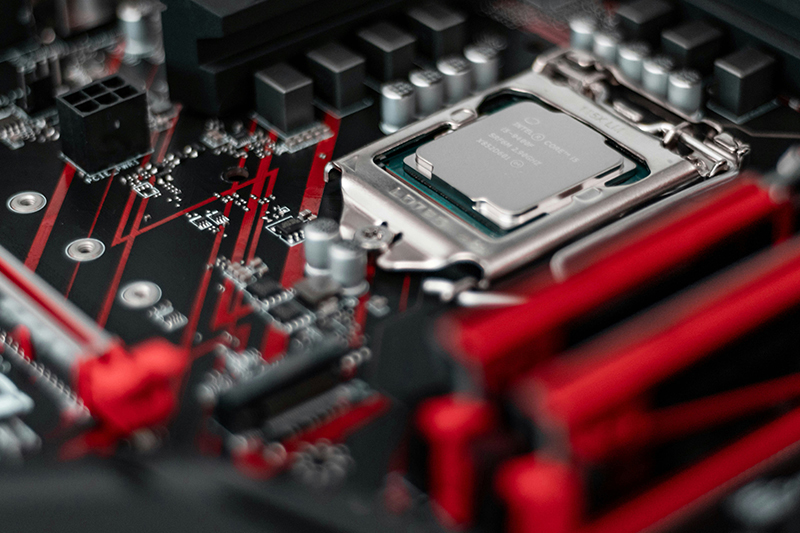Navigating the Electronics Sector’s Challenges in Hong Kong
Electronics enterprises are moving fast with their innovative solutions in the teeming urban area of Hong Kong, exploiting the city-state’s advantageous position and the lively tech ecosystem. Despite having its advantages, the electronics sector goes through several specific obstacles, which need attention along with strategic solutions from all the businesses across the sector.
To Know the Hardships of Electronics Sector in a Better Manner
Electronics escape hole weaknesses in the Celtic Island field. For the electronics industry in Hong Kong, the competition between the global supply sources and the firm’s operations is especially the issues that are paramount. For instance, the manufacture of electronic goods still faces a considerable threat from the management of electronic waste generation, as both sides of the coin need to be taken into account. It has not been long since the technology boom was brought about by the discovery of new materials and the deployment of more efficient machines for the production of quality goods. Also, the challenge is getting worse by the increased rate of disposal of ecological electronic waste, which firms are looking to manage through innovation rooted in ecological resilience on disposal.

Electronic goods in HK also face the same problems as in other industries. Skilled labor is in short supply, as demand for it at retail and other sectors vary, which leads to the same pressure being felt in both sectors in the hunt for it. The need for digital change and better consumer experience put stress on both electronics sellers and other businesses that want to operate in a technologically advanced way.
The Advantages of POS Systems in Defeating the Industry Problems
Advanced Point-of-Sales (POS) systems offer a different strategic line to these challenges. Electronics and retail sectors in Hong Kong have the opportunity to utilize these systems to tackle the issues that are specific to their business and common to the entire industry. In fact, POS systems are used in the supply chain to bring together the whole operation of inventory management under one platform, before the disruptions from the supply chain to be faster minimized. Functions to analyze the incidence of realization of businesses to rethink the parameters of embracing or not embracing the technological advancements.
Of course, POS systems considerably enhance retail by improving the customer insight into the customer behavior to the extent that they can contribute to labor shortages by helping to optimize staffing and enhance customer engagement. Thanks to the e-commerce sales channel, which is incorporated with this system, electronics retailers, which are in line with the digital transformation objectives, are now able to keep their competitiveness during the changing sale condition.
Guidelines for the Successful Implementation of a POS System
Implementing a successful POS system involves meticulous planning and execution. It begins with setting specific objectives and ensuring that the system’s capabilities are aligned with the firm’s strategic goals. Retailers should choose a system that is adaptable to their changing business needs and can be integrated seamlessly with their existing ERP and e-commerce platforms for a coordinated operation. Comprehensive staff training is key to get the maximum benefit out of the system, with the assurance that all the features are effectively used.
Five Major Features of Multiable’s aiM18 POS System
Envisioned to fulfill the needs of the electronics industry in Hong Kong, Multiable’s aiM18 POS system has several valuable features:
1. Real time Integration: Provides fast e-commerce and finance connections which saves time and increases accuracy.
2. Automatic Logistics Service Provider Selection: Logistics efficiency is optimized with AI-managed decision-making.
3. Member Self-service Portal: Better customer engagement and satisfaction is achieved by enabling self-service options.
4. Custom Business Flow Without Programming: Flexibility and adaptability in business operations are achieved without technical barriers.
5. Support for Multiple Payment Solutions: Consumer convenience is raised by more payment ways like WeChat Pay and Alipay.
Multiable’s Integration with Other Platforms
The aiM18 POS system strengthens its power with real-time integration with major e-commerce such as Shopify, Amazon, and JD, plus the popular payment solutions WeChat Pay and Alipay. Thus, electronics retailers in Hong Kong can remain competitive by providing both online and offline users with shopping experiences that are both fast and customer-friendly.
What is Multiable POS ?
Multiable POS is a cloud-native POS targeting retail groups with sizable chain stores in Singapore, Malaysia, Hong Kong and China. With over 6,000 customers in the region, Multiable POS gains positive feedbacks from public companies and multinationals across different sectiros, from cosmetics, furniture, fashion, healthcare, pharmaceutics, sportswear and toys etc. The renowned no-code approach saves customer a big sum of customization costs and countless hours of implementation man-days.
What is LAIDFU (Let AI Do for You)?
LAIDFU is an AI tool for enterprise to build their own AI agents to perform various business AI tasks.
Proprietary EKP (Enterprise Knowledge Partitioning) technology eases CEO’s concern about trade secret leakage which often occurs in most AI agents / chatbots in the market.
EKP removes the hurdle of business AI adoption by most companies in using sensitive corporate data.
Powered by no-code approach, deployment of LAIDFU incurs far less developers (and development costs) in comparison with other AI tools.
LAIDFU empowers business, with or without an ERP system in place.
Contact us

